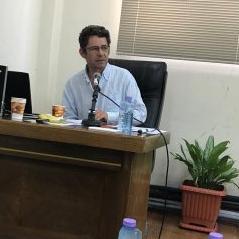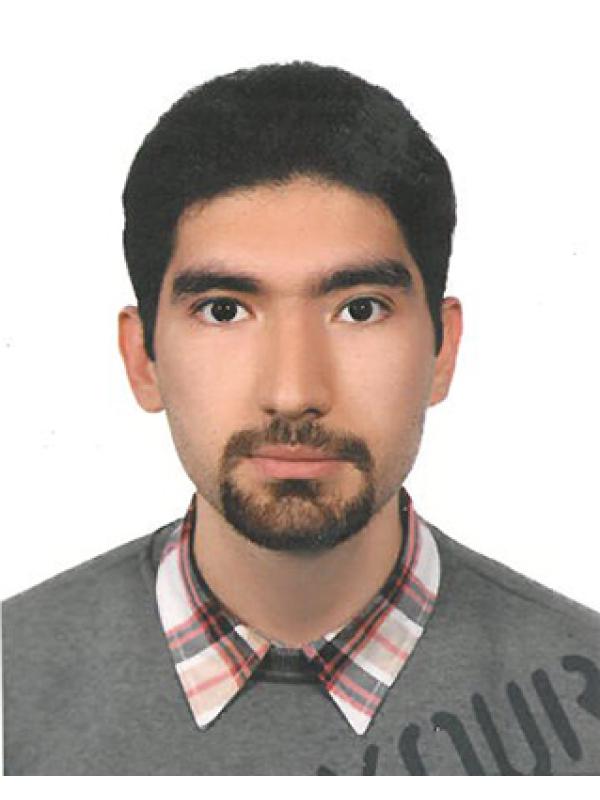Perception, Rationality and Self-Knowledge
Statut: Terminé (01.05.2017 - 30.06.2022) | Financement: FNS | Voir la fiche du projet
Perceptual experience of an object is often said to settle questions as to what the object is like in a peculiarly immediate and authoritative way. Articulations of this idea can be found across otherwise disparate traditions in 20th century philosophy. According to Husserl, ‘the ultimate legitimating source of all rational assertions’ is provided by ‘self-giving intuitions’ in which the presence to consciousness of an object renders facts regarding the object ‘self-evident’. (quoted in Smith 2003: 47) Again, Austin writes that when I see a pig, ‘there is no longer any question of collecting evidence [as to the presence of a pig]; its coming into view doesn’t provide me with more evidence that it’s a pig, I can now just see that it is, the question is settled.’ (1962: 115)
The question of how the intuitive contrast between ‘evidence-based’ and ‘experience-based’ knowledge is to be articulated is an issue of fundamental importance for epistemology and the philosophy of mind. A general thesis informing the proposed project is that properly understanding the contrast requires understanding the nature of the self-knowledge available to reflective perceivers. Note that Austin’s confidence that his question is settled (in a way that obviates the need for evidence) finds expression in a claim to self-knowledge: ‘I can see that it is a pig.’ A natural thought here is that it can hardly be a coincidence that Austin is aware of the way his question is settled. That thought in turn raises immediate questions regarding the content and the nature of the reflective awareness we ordinarily have of what we currently perceive, and regarding the relationship between such awareness and the explanation of ‘first-order’ perceptual knowledge. By putting these questions centre stage, the project aims to broaden the terms of current work on the epistemic role of perceptual experience. There is a strong tendency, in contemporary epistemology, to treat ‘perceptual knowledge’ and ‘self-knowledge’ as labels for different and largely unconnected sets of philosophical problems. The two topics are supposedly distinguished not just by the subject matter of the knowledge under consideration (knowledge of ‘the world around us’ vs knowledge of ‘our own current mental states’) but also by the distinctive philosophical questions to which the two kinds of knowledge give rise (roughly: how to understand ‘perceptual warrant’ vs how to understand ‘first-person authority’). Both through the work of its core members and through international conferences and at least one edited collection, the project will seek to promote a less compartmentalized approach, highlighting substantive, mutually illuminating connections between the two areas.
The project aims to make progress on these matters through a sustained critical dialogue between three competing approaches, to be developed by the three subprojects. This dialectical structure may be unusual, but we are confident that it will prove extremely fruitful. The relation between the three approaches is characterized by substantial common ground combined with a number of specific disagreements. The close mutual questioning afforded by the project will not only provide invaluable support for each sub-project but simultaneously help to understand the sources of some major controversies in contemporary epistemology. Very briefly, the three approaches are as follows:
Subproject A (Roessler) investigates the prospects for what it calls a non-reductive analysis of the explanatory connection between perceptual experience and knowledge, an analysis that takes the connection to be basic rather than analyzable in terms of some underlying link between perceptual experience and belief.
Subproject B (Soldati) pursues a ‘disjunctivist’ account of perceptual warrant, according to which perceptual knowledge is to be explained in terms of reasons for belief that are provided by veridical perceptual experience (not by illusions or hallucinations).
Subproject C (Giananti, with the supervision of Roessler and Soldati) explores an account of perceptual knowledge that is closely informed by work in the phenomenological tradition. A central idea is that awareness constitutively involves a basic form of self-awareness, and that it is in terms of this constitutive link that we should account both for the sense in which perceptual knowledge is intelligible to reflective perceivers.



